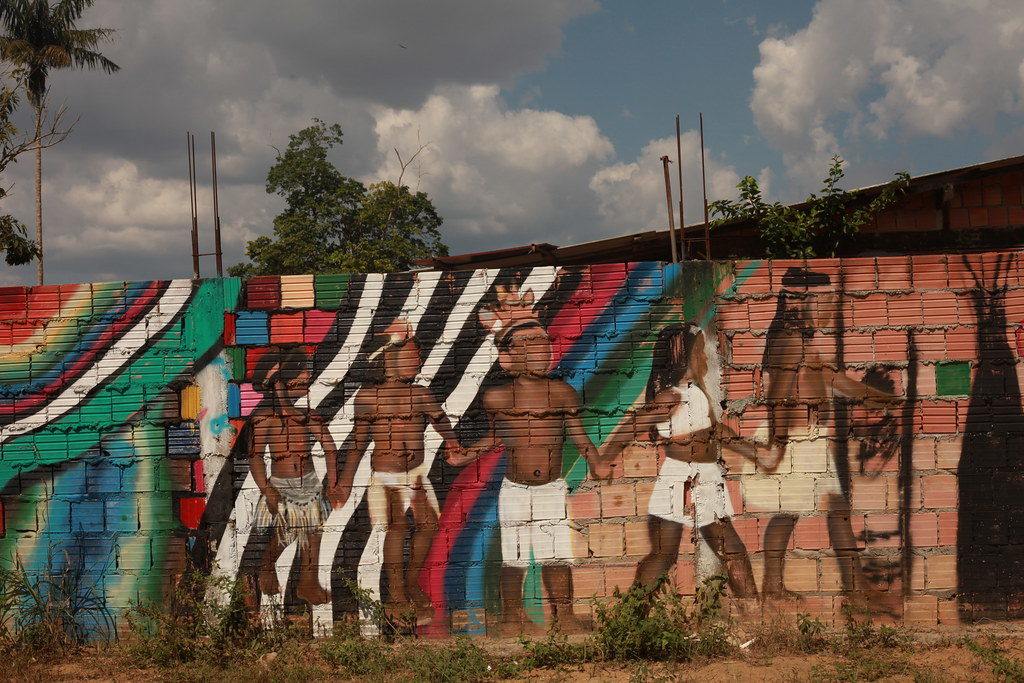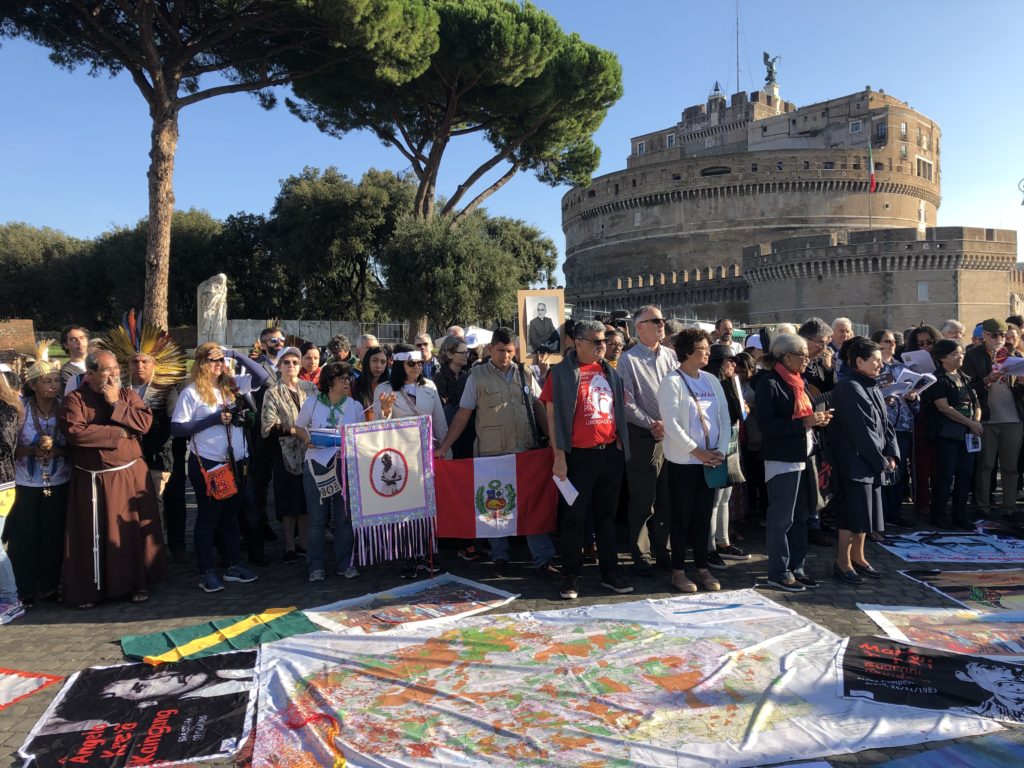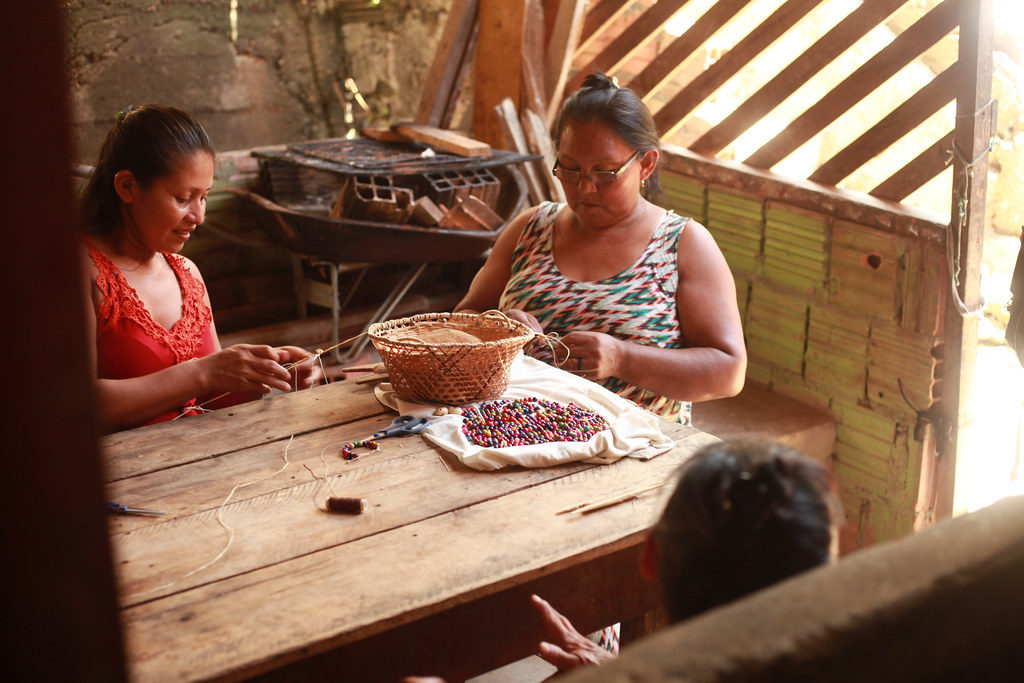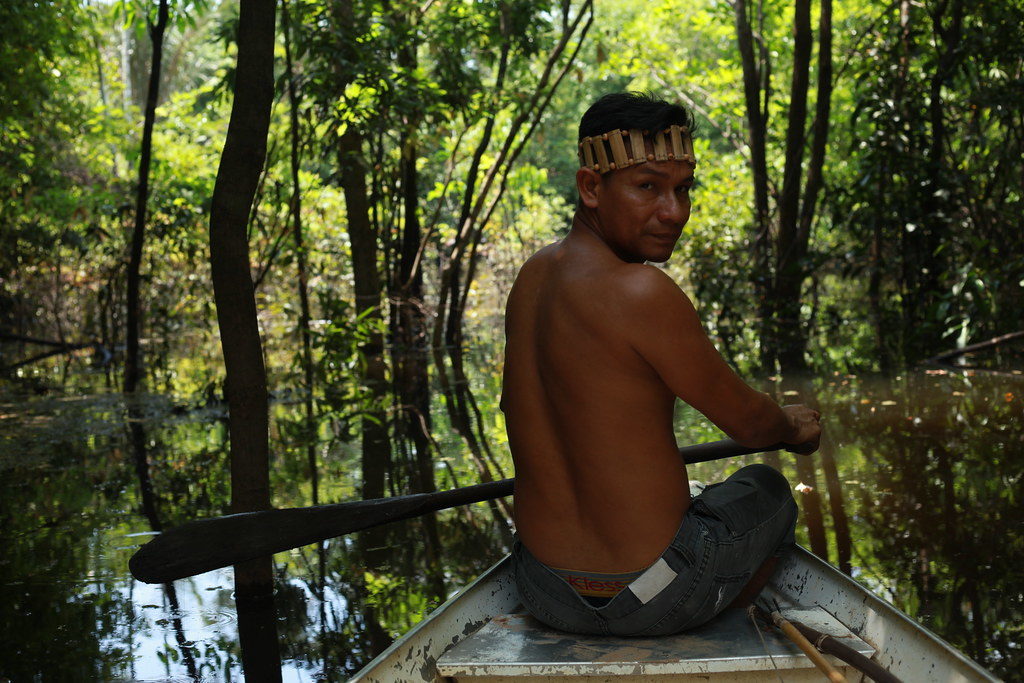Hope has been awoken by the historic Amazon Synod. We reflect on this remarkable moment in the Church and what it means for Caritas and the people we work alongside.
“This Synod is an unprecedented experience of walking together and has transformed the Church.” -REPAM
“It is a watershed event,” says Mauricio Lopez, head of REPAM, the Pan-Amazon Ecclesial Network, who was at the assembly. “A new phase for the Church has begun.”
The eyes of the world turned to Rome as bishops and advisors debated the crisis in the Amazon biome. Many core concerns for Caritas have been discussed: indigenous rights; environmental devastation and the Church’s role in defence of the Amazon. It gives our work new spirit and power, as the implications of the Synod unfold.
Listening to the cry of the Amazon
For Caritas, the primary achievement is that Amazon voices have been heard. The “periphery” has been brought to the centre, as Pope Francis requested. We are proud to have helped this happen.
“Never before has there been such a model of participation to prepare for a Synod,” says Mauricio, who helped coordinate an extraordinary listening project with 87,000 Amazon dwellers beforehand. Caritas partners crisscrossed the entire Amazon basin gathering testimonies. Pope Francis said he had never known such a free and joyful pre-synodal consultation.

Mural project led by graphic artist Alan Dellon. The project supports the inclusion of indigenous peoples in the Parque dos Tribos (Park of the Tribes) neighbourhood, Manaus, Brazil. Photo by Marcella Haddad/Caritas
In another unprecedented move, many indigenous leaders attended the Synod. “Their clarity, the testament of their lives…have left an indelible mark on this Synod,” REPAM reflects. Pope Francis listened to them at length.
The Amazon, they said, is all of us. “If the Amazon disappears, we all disappear,” declared indigenous leader José Diaz Mirabal, head of Caritas partner COICA, the umbrella network of Amazon indigenous groups.
“Can we breathe money?” demanded Yesica Patiachi Tayori of the Peruvian Harakbut people, denouncing extractive industries. “Can we eat oil? This model of development which destroys the life of indigenous peoples and destroys the planet – this has to change.”
These are people Pope Francis believes can answer his call in the encyclical Laudato Si’ to find better pathways towards authentic human development, as he said in the closing Mass:
“We have had the grace of listening to the voices of the poor and reflecting on the precariousness of their lives, threatened by predatory models of development. Yet precisely in this situation, many have testified to us that is possible to look at reality in a different way.”
Caritas at the Synod
Caritas contributed in many ways, especially through facilitating partner organisations and indigenous leaders from the Amazon to attend. Running alongside the Synod, Caritas Internationalis helped set up the ‘Amazon: Our Common Home’ initiative, a packed calendar of public events for involved groups to share their experience.

Caritas walk alongside indigenous communities during a Via Crucis (Way of the Cross) procession from St. Angelo Castle to the Vatican during the Synod. Photo by Alejandra Pero/Caritas
Caritas Brazil and Colombia were among those who presented their work, on sexual violence against children and young people; human trafficking and migration in Brazil; and the effects of mining and oil exploration on the lives of people in the Colombian Amazon. Caritas Internationalis showcased its advocacy work on behalf of the Amazon within international frameworks such as the UN and the EU.
“This Synod didn’t just happen behind closed walls,” explains Kelly Di Domenico from Development and Peace in Canada, who saw Synod participants flow out to the public events. “It was about building alliances and making people feel heard. It was very powerful.”
The final document and the way ahead for Caritas
The Synod’s final document shows the “exchange of profound freedom, trust and fraternity,” among the participants, as Mauricio of REPAM describes it.
The proposals, now being deliberated by Pope Francis, point in exciting directions for the work of Caritas across the Amazon nations. “We are on a good path,” as Pope Francis says. As he wished, the decision-making of the Church is now rooted in the experience of its humblest people.
In his closing address, Pope Francis pointed to four dimensions discussed by the Synod: social, ecological, cultural and pastoral. All four are fundamental to Caritas as defenders of human rights in situations of ecological devastation, violence, racism and poverty.

Cilene Perereira, 53 is an indigenous Ticuna woman. The Ticuna are the most numerous ethnic group in the Brazilian Amazon. Poverty and lack of access to education are serious problems. Photo by Marcella Haddad/Caritas
On indigenous rights, the Synod reaffirmed the Church’s duty to be an ally of the Amazon peoples, in favour of their human rights, land rights and the protection of the most vulnerable populations. It suggests setting up a world fund, to help Amazon communities promote their own development.
On environmental protection, it condemns ruthless extractivist industries that are damaging the Amazon and leading to the displacement of so many from their homes. It calls us all to an ecological conversion, as individuals and as communities.
For the Church in the Amazon, Peruvian Bishop David Martinez, Special Secretary to the Synod, puts it thus:
“The Synod is waking us up. We would like a more dynamic Church, committed to the Amazon, to the environment, to our common home, to our peoples.”
Caritas partner REPAM is to help the Latin American bishops create and coordinate a “Church for the Amazon”, while a special department is proposed within the Vatican, to keep Amazon issues at the centre of the Church’s attention.
These messages emerging from the Synod will inspire and guide Caritas’s own advocacy work, to help answer the cry of the poor, not only in the Amazon but with all communities we serve.

Indigenous leader of Tururukare community fishing in the Brazilian Amazon. Photo by Marcella Haddad
A call for ecological conversion
The Synod presents a profound challenge, reflects Kelly from Development and Peace:
“Calling on Catholics to internalise the indigenous way of thinking means a major shift in our relationship with nature, with each other and with God. This is the ecological conversion that we are being called to.”
We have been given a clear mandate from the Pope, and from the Amazon. Indigenous teacher Yesica expresses her hope: “Through the Church working alongside us after the Synod, we will build actions to defend our common home. This is everyone’s responsibility.”
The work of Caritas for integral human development continues in a spirit of renewal. “As Caritas our task is to carry on defending human dignity and attending to those who suffer,” says Monsignor José Luis Azuaje, President of Caritas Latin America and Caribbean. “The Amazon Synod is now a reality.”
By Harriet Paterson and Alejandra Pero
